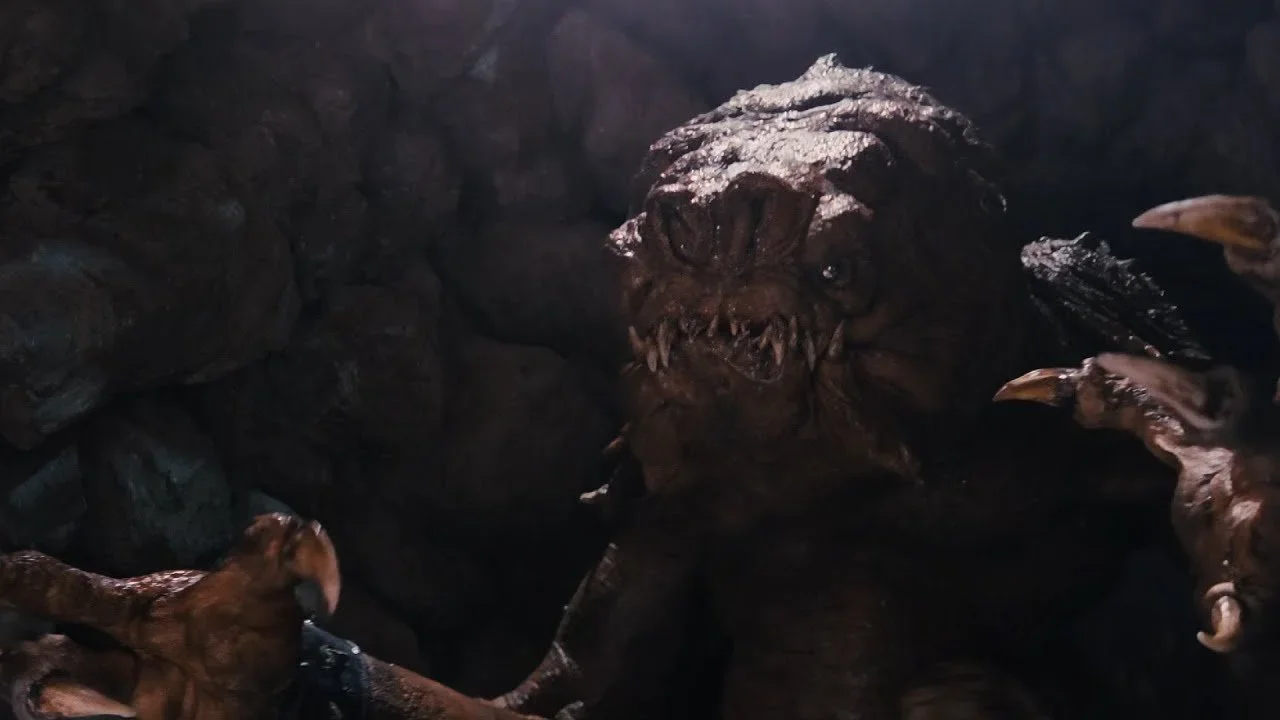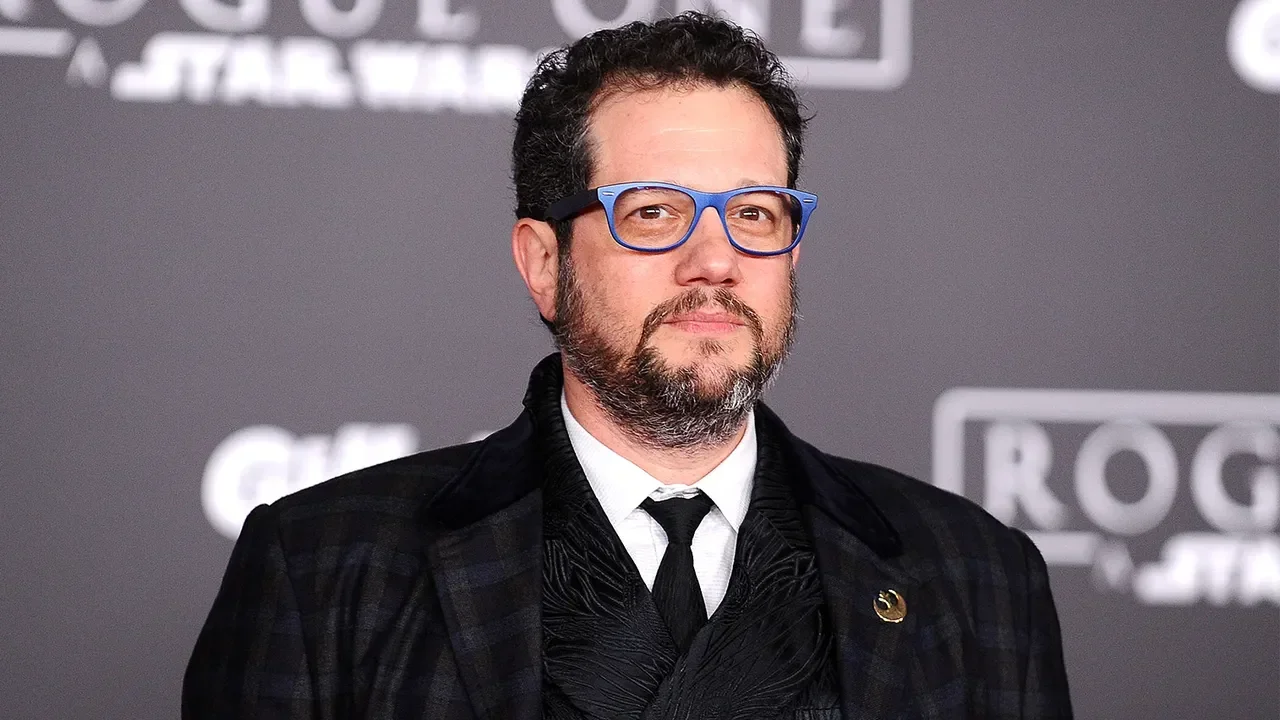Interview With Tim Miller And Dave Wilson, Executive Producers For Prime Video's 'Secret Level'
Image Source: Screenrant
CultureSlate had the chance to sit down at a round table interview with Tim Miller and Dave Wilson who are the Executive Producers for Prime Video’s Secret Level. Below are the answers to some of the questions asked about this unique and cool series and the process behind making it.
Q: How did you choose which video games to use for this show? And how did you choose the animation styles and marry them with the video games you chose?
M&W: A lot of it is who would dance with us because we asked a lot of people. A lot of them are people that are in the show because they trusted us, and they know that we're going to treat their babies very delicately, but like with Love, Death, and Robots, I think it's really important to have something for everybody. The structure of the show was important for us to have indie games. It was important for us to have nostalgia games, and then it was important for us to have the bigger AAA games that are more popular. We also knew it would be a big part of the show to have games that aren't out yet. It's a mix of those.
Stylistically, with some of the more AAA titles, and all the ones that haven't been released yet, like Exodus, we wanted to stay close to what they're already developing with the game. Some of the others, like Pac Man or Spelunky, where there isn't an established sort of cinematic style, we got some freedom to take chances or develop a style with them. It's built off the established looks of the game. Artists care about their work. We love working with them and supporting the community.
RELATED:
Image Source: Art of VFX
Q: This show has a variety of games such as Pac-Man and Warhammer 40K. What kind of opportunities did that present for storytelling? What kind of challenges?
M&W: I think the opportunity is almost obvious in that the beauty of the anthology is to be different. The danger is that they get homogenized. The stories are curated from compendiums of short stories. We brought a lot of the same authors back [from Love, Death, and Robots]: Peter Watts, John Scalzi, Adrian Tchaikovsky. They come in, and we distill the franchises down. We indoctrinate them into the world of games, and they pitch ideas to us. The winning pitch becomes a short story that becomes a screenplay. And by doing so, we're not homogenizing. It's not Tim and Dave coming up with all these different stories.
The goal is that obviously, for example, Warhammer is not going to be a comedy. so there's an inherent lane that it's going to stay in. But as much as we can, we try and have some horror, some straight-up action, some comedy, etc.. Like New World, for example, they have moments of humor in some of what they do, but I wouldn't say you would describe it as a humorous game. We pitched them the idea, and they said that sounds fabulous. As much as we can make it have a sort of a broad appeal, both to who the audience is, but what the stories are and the sort of genres they fit in, the better.
Q: When it came to deciding the video games that are represented in the show, what was the one franchise that gave you the biggest challenge in terms of approaching it such as with animation or storytelling,
M&W: That's a good question. They're challenging for different reasons. In Warhammer, what are you picking? What race? What chapter – well, the chapter was easy. The challenge there is where do we start? Honor of Kings, for example, is in our series. It's a fighting game, like League of Legends, if you will. Their [the creators] favorite Love, Death, and Robots episodes were “Zima Blue” and “The Very Pulse of the Machine” - very cerebral. They wanted an episode that was like that which was surprising to us. The challenge there is how do you take that world and create, a Black Mirror-like episode for them. The author who helped write it has experience in real-world science so was able to draw on that to help. Tamsyn Muir, who wrote Gideon the Ninth, wrote the “Spelunky” episode. When I was actually talking to her about another project, she said, “I'm sorry, I'm missing my deadline, I can't stop playing Spelunky.” I said, “Maybe we should put it in Secret Level.” And she said, “I'll slit the throat of anyone who tries to get in the way of me writing that episode.” You get a lot of passion from them the authors, which is nice.
The easiest way to say it with an anthology is that they're all challenging for different reasons. It's kind of the beauty. There's no sort of formula you can follow to tell that story, which is awesome. It's incredibly frustrating at times too. Sometimes the author came in with a home run, and it was an easy adaptation, like The Outer Worlds was that way. For others, it can be a bit more of a meandering path. But sometimes that meandering path ended up with something completely unexpected, like Pac-Man.
Image Source: IGN
Q: Do you think that this series you've created is a means of bridging, maybe fans of animation who don't play games, and people may play games that might not necessarily watch different types of animation or anthologies?
M&W: I hope so. It's funny because when you say animation, for me, gaming was the first form of like animation. Other than childhood cartoons growing up, I feel like gaming brought adult animation to Western shores long before animation did, in my opinion, We did some focus groups, and one of the folks who watched “Warhammer” said, “I didn't even realize I was watching animation until I got to the questionnaire and it asked me if I liked the animation or not.” I think there's a whole untapped adult, realistic, cinematic animation explosion waiting to happen with this sort of work, whether it's Warhammer or Armored Core. Especially when you're looking at a movie star you know very well in a very different setting, or playing a very different character than you've ever seen before.
I think anybody that likes games will like this show, and it'll feel like the game experience is an extension of the game experience they love. I feel like anybody that loves animation and loves our Love, Death, and Robots show, will trust that, even if they're not game players, that these guys know how to tell stories. They’ll give it a shot, and then, hopefully, they'll fall in love with the world of games too, because we hope that watching the show leads to game playing, and game playing leads to watching the show.
Q: What are the biggest challenges going from video game to actual screen time, and where do you see this going in three to five years?
M&W: It used to happen all the time. You'd buy a video game. You'd have an intro scene that tells you about what you're about to play, and then you play it for a while. Then you usually get rewarded with another cut scene that sets you up for the next amount of play. And then those things kind of went away, and it just became gameplay. We grew up in the age when we were helping them tell the story and preparing the players to play the game. We feel like we're doing that again, and it helps to enrich the gameplay experience.
Q: Did you have a favorite game growing up, and did it make it into the show?
M&W: Yes, I played Warhammer. I painted little figures when I was a kid. Obviously, I played Pac-Man, though I'm not sure we played the version of Pac-Man that is in our series. I want Joust. I want Wolfenstein. I want Flashback. A lot of the games that are in the show are from people that work with us, but if they're not, who are we who are calling and saying, “Give us your IP and we're going to put it on this thing.” It's going to tell a bunch of short stories, which is really weird when you think about it, with everybody throwing it in together. Even for the industry, it was a weird concept, but people liked it afterward. I'm hoping that after they see it, if the show does well, then I'll get Joust and Space Invaders and Unreal Tournament too. We can put Jazz Jackrabbit in Season Two. I'd be happy. I played Tetris. That would be a challenge I’d like to take on.
Prime Video’s Secret Level is now streaming. Go watch this unique and innovative show!
READ NEXT:
















